Igor Levit: Why I stopped playing
mainThe German pianist played 52 nights online in lockdown. Then he stopped.
He tells Fiona Maddocks why:
I needed a pause, time off, silence. These concerts were, literally, and from the bottom of my heart, life-saving – mentally, physically, emotionally. So my gratitude to every single person who listened is infinite, immeasurable. I was able to be who I am. I just played the music I wanted, crazy stuff, without borders. Soon enough, I’ll be back.
Full interview here.
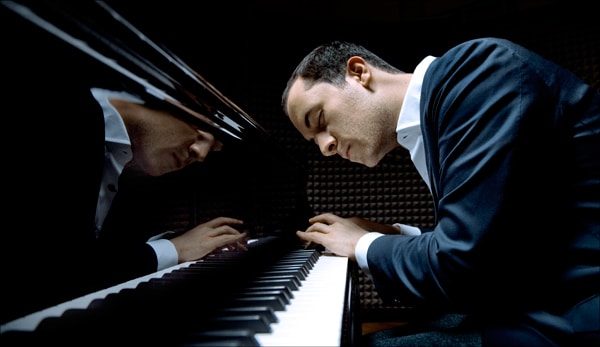
UPDATE: He’s resuming tonight.
Ich möchte heute Abend wieder für Euch spielen. Sehr.
Hier um 19:00.
🙏🏻— Igor Levit (@igorpianist) May 24, 2020

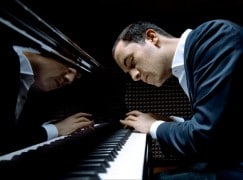

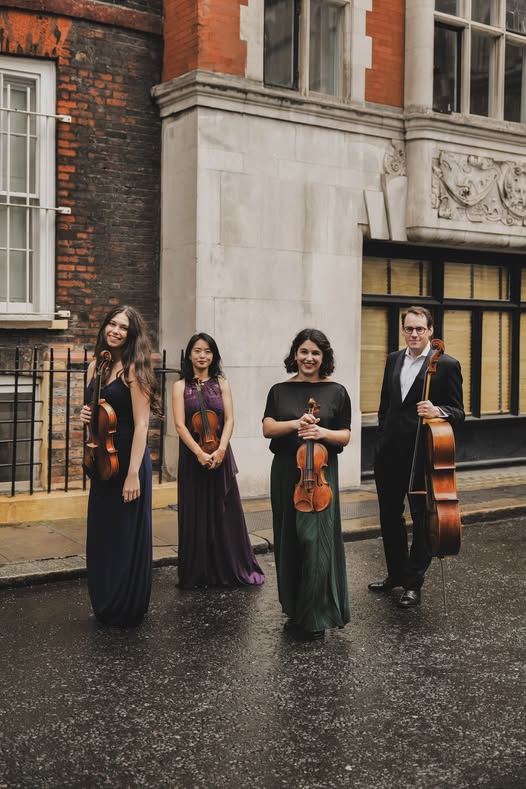
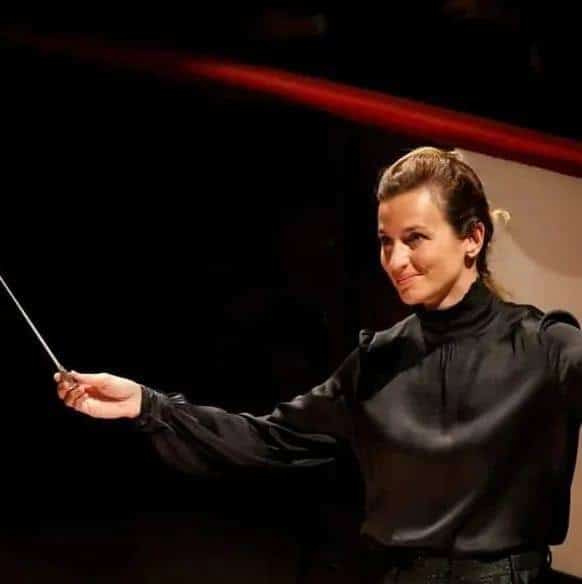
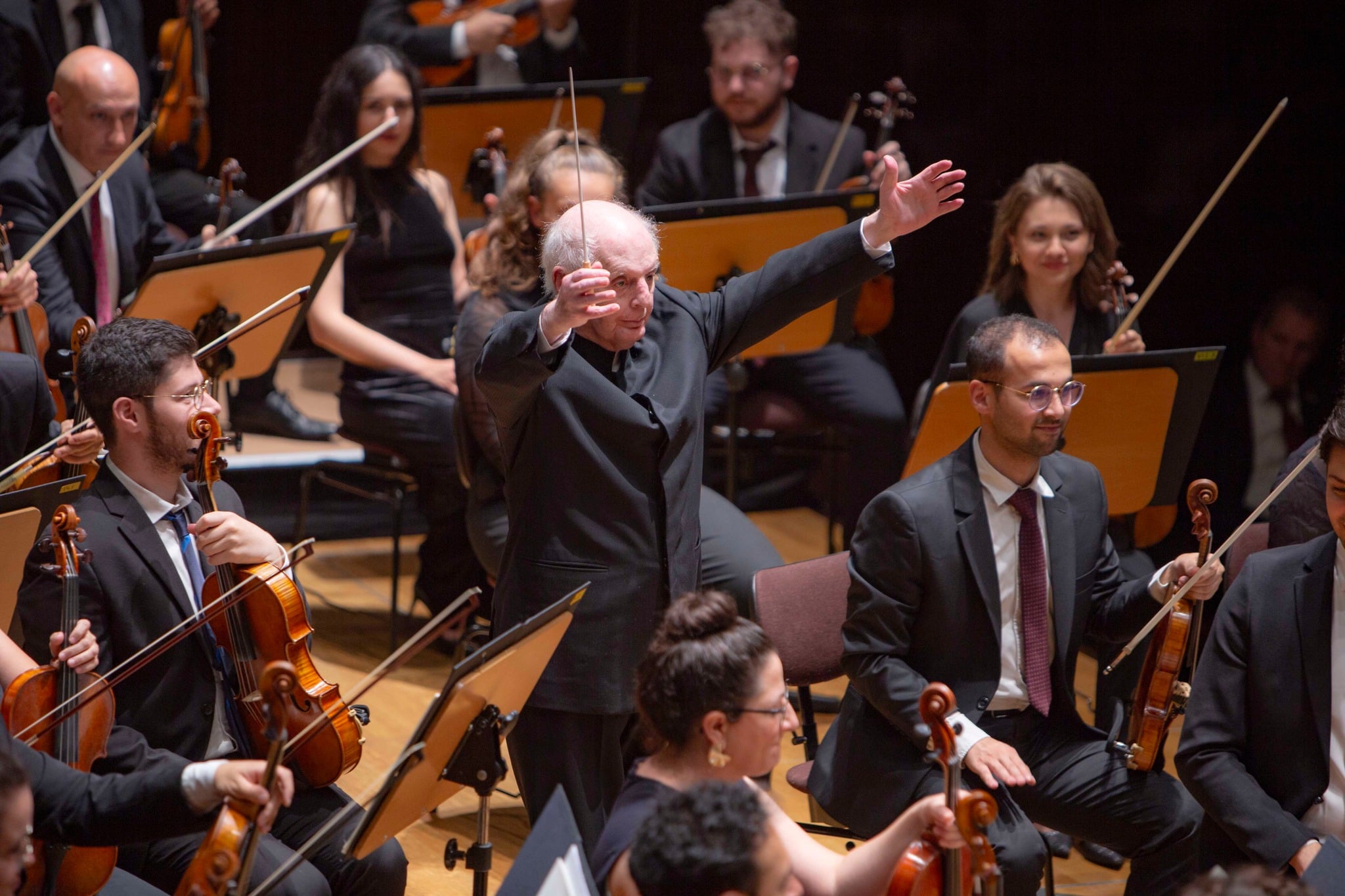
I´m thinking of German and Russian musicians who played during WW2 with artillery raining outside the concert hall. For years. Now people experience a lockdown for a few weeks and people talk about “life-saving” because they sight-read some piano pieces every night … Extremely pompous, as always. Give me a long, long break from this!
Bravo.
Bravo.
I’ve never understood why people are so put out by someone talking about his own experience from his own perspective.
Jurij, music means different things to different people. I decided to perform from home every Saturday at 5PM ET because it was not only self-therapeutic, but offered solace to those who needed the comfort. Many people playing online are primarily doing so for themselves and to bring comfort to those close to them on their social networks. It’s ok. It is better than bottling in the frustration and helplessness. While health care workers are doing what they are trained to do on the health frontlines, perhaps we, as musicians, feel we are doing the same through music. I don’t see it as pompous, but a form of therapy which goes both ways.
Have a little too much time on your hands?
And you, with you low-rent sarcasm?
Igor Levit sight-reading? Where do get that information from?
A longer period of abstinence would have been a welcome break from over-exposure and self-importance!
You can abstain fgrom listening for as long as you like.
I admired him as a musician some years ago…but I have been losing interest as he becomes more and more political.
I am all for artist being politically active, but Levit is downright annoying. Why the grandeur? He always speaks as if every experience is a holly, once-in-a-lifetime… as if he were endowed by the creator!
Of course he does – because what else does he have to offer? The playing is college level and usually underprepared.
You’ve clearly heard him sufficiently to make this useful comparison. Lucky college…
‘He always speaks as if every experience is a holly, once-in-a-lifetime…’ Prickly customer then? :–)
What’s holly got to do with it? That’s for Christmas..
Paderewski was intensely political. A problem with musicians/creative artists being political?
Do as you want. We need no explainations.
Explanations. Sorry.
I once got a fortune cookie that said “Never explain. Your friends do not need it and your enemies will never believe you anyway.”
Wonderful and heartfelt words, on what it’s like to be a performer, and to be deprived of the power to do what he does best, to communicate what’s deep inside him to an audience. I think it’s sad that some people writing comments here are so lacking in a certain generosity of spirit, of empathy, that led them to spew such cynicism…
Everyone experiences this huge shift in our lives in different ways. Perhaps the silence for Igor is what he needed to cleanse himself of the horror around him. Others do other things to find self-therapeutic ways to deal with this global crisis. We are indeed all in this together. I have a wonderful student who put together a video of ‘You’ll never Walk Alone’ with 300 people from 15 countries. He also plays on his own Facebook channel for friends and family. It is music, it is therapeutic for the giver and receiver. Personally, I feel the need to comfort others, so I perform every Saturday evening on my personal FB page and YouTube public. If I were a health care worker, I would be sharing myself on the front lines to help others. As a musician, it is my sole right to share music, or not. I choose to. Also compose. What I would love to do is reach out to pianists and composers of piano music and create a book of new solo piano music from these times for all of us to play and for posterity. Any one game? We could probably get it published too, either through a big publishing house (that’s easy), or self published online and shared. Can you imagine, piano music by performers and composers for piano? Just a crazy idea to turn a tough situation into a positive one.
I’ve been enjoying your performances, Jeffrey, and I’m looking forward to the next one. Igor’s as well – the Bach/Busoni he played today was wonderful.
Thank you, RJ. Believe it or not, as soon as a Saturday concert is over, I think of the next. Gotta keep up the chops and the performance psyche somehow. Home may as well be Carnegie Hall. It is, however, more difficult to do because you don’t see the audience. But when we do return to the ‘live’ concert hall, oh, how we will appreciate it more than before. It is inspiring to listen to music, especially times like this. I applaud Igor and everyone sharing music from their hearts to ours.
“The horror around him”? What, he’s helping load bodies into refrigerated trucks? Your rose colored glasses just get thicker and thicker. Levit’s biggest horror is that someone might prefer their… record collection… to his nightly scratching. And who wouldn’t? Am I really supposed to listen to Igor Levit when I could be listening to Menahem Pressler or etc etc?
Arthur, everyone is living through this through different lenses. People close have died from this, my sibling had it, my niece is an ER nurse, my son will be starting a residency soon in a hospital. Look, we cannot pass judgement on others, especially now. I, personally, would rather listen to ‘live’ music making during a crisis like this, even on a computer, music making from the real emotional guts of the player, than an edited recording made in a sterile studio. In the end, hope you’re well, and please share which Pressler recording you have. He remains a blessing to us and a wonderful artist.
You’re a follow of his nightly ‘scratching’ I take it?
One of the great pianists of the 20th Century – Alexis Weissenberg- took a sabbatical from concertising for 10years. He came back much revived after this period of teaching and learning new repertoire.
Alexis “Sigi” Weissenberg’s experience is worthy of note, and not confined to him. Horowitz took 12 years off playing in public, Cliburn several for various reasons, and Glenn Gould retired forever.
While rusticating, Weissenberg wrote songs, designed cards and fashions,, and accompanied singers. He owned pieces like Scriabin’s left-hand Nocturne and Bach-Busoni “In dulci jubilo” and a Chaconne to match Michelangeli’s. Spanish songs with Caballe and Rachmaninoff songs with Nicolai Gedda are unexpcted but predictably fine. There’s even a “Carnival of the Animals”. He and his friend Karajan shared a love for the music of their teacher, Pancho Vladiguerov, “the greatest Bulgarian composer”. Of COUrSE!
Thanks for all that information about Weissenberg, some of which I only had a partial awareness of.
His reputation has grown over the years, and has certainly risen way above the rather sniffy reaction his recordings got in the somewhat stuffy Penguin Record Guide!
Welcome, Hillary, a pleasure. I forgot the Brhms violin sonatas, with Mutter, and I think there are three Mozart concertos with his own cadenzas. His first record I had was a 10″ Columbia LP billed as “Sigi” Weissenberg, about 16 in short trousers, with a Scriabin etude, the left-hand Nocturne I mentioned in which he’s unequaled … there’s a film of him playing it and maybe other pieces … and Bartok’s “llegro barbaro”. His 1951 recording of the Nocturne on EMI “Encores” CD is better, and the film. There are interviews.
He got to Israel, then new York where he had lessons with Wanda Landowska. It shows, especially in his Bach partita the French Overture.
Typo. Right date is 1961 for EMI Encores CD with Weissenberg’s better Scriabin Nocturne for the left hand. and a piece by Vladeguerovv.
For me, one of the stand-out recordings is the Bach/ Liszt Prelude and Fugue in Aminor. Faster , and more forceful than other readings, it has an elemental quality, playing to all his many strengths as a performer.
Yes, Hilary Weissenberg playthat Bach-Liszt Prelude and Fugue in A minor ideally. I like all his Bach that I’ve heard, especially Bach-Busoni Chaconne and partitas as mentioned.
Young Konstantin Lifschitz gives him a run for the money in the French Overture, another favorite.
Weissenberg would seem made to order in Brahms firt and Rachmaninoff concerto, but sometimes he surprises me. ‘”In dulci jubilo” is lightning fast, at least double Kempff’s tempo, and almost ends in a finger tangling train wreck, each line twice as fast as the next, but stupendous.
I have a tic about the second partita in C minor, which I think related to Beethoven’s Pathetique, same key, a French overture in disbuise, sharing the the first four notes of its finale with the first four of Bach”s allegro. I think the Pathetique’s repeat sign is misplaced and should be at the end of the grave introdution instead of the following Allegro. Schiff and some otheers now play it that way.
Weissenberg is a very special pianist.
I used to like and admire Igor Levit.
However, now, at least on twitter, I find his constant ongoing craving for (one sided) attention very odd.
Monday on twitter: Twitter sucks, twitter should stop existing, it should shut down. Tuesday on twitter: If I get 107 013 followers, I will play such and such on twitter.
Why does he always make such a fuss about everything? His need for attention, despite already getting lots and lots, feels almost child like to me.
The best rule for social media: take what you like and leave the rest.
A corollary: the cruelest comment on an artist is silence. This is why in publishing we say, “bad reviews sell more books than no reviews.”
And yet you follow him on Twitter…
Hi Bruce, I don’t actually. I just sometimes read his comments on politics and society and find many of them important and courageous.
I used to read them regularly, they are often on German politics, which is where I live.
Finding the comments on anti-semitism, environmental protection etc. important, is one side.
And the other side is what I said above about his posts on himself (to play or not to play, to tweet or not to tweet, etc).
This is not contradictory. Many people have more than one side. His comments on society etc I mostly like, his other comments not so much … they have become so self-important.
I know him well – he’s a great artist and, equally a great human being without a trace of self-aggrandisement. He cares passionately about the world, people, politics, social and cultural matters and invests precious little into the Levit ‘cult’. Such things do not concern him and 5 minutes in his company will persuade you of this.
It’s unfortunate that all of us are required to follow him on twitter and watch his videos…Too bad you can’t choose to avoid/ignore/get a life…opinions are like as*holes…
Nonsense. Having the ability to “choose to watch something else” doesn’t diminish the fact that the thing avoided is atrocious, bad, self-important, etc. Of course we avoid it – and we can tell others to avoid it, too. If opinions are like assholes, well that sword cuts both ways.
The fact that a work by Morton Feldman elicited a heartfelt response on Twitter is one of the more surprising and encouraging things I’ve read for a while. Not that it should be Feldman as opposed to, say, Cowell, Cage or Kurtag, but simply that a work not widely known and perhaps difficult to apprehend on first hearing should touch so many people.
I just listened to the Brahms arrangement of the Bach Chaconne and wonder how can anyone fault him? It was a beautiful (live) musical experience and that is rare these days.
What, no one else plays the Chaconne? Please. Live musical performance is anything but rare – it’s a dime a dozen on the stream of any artist trying to remain (or be) relevant. But only Igor has exactly the right brand of smarmy woke self-aggrandizement.
Brahms arrangement of the Chaconne is not ‘a dime a dozen’. Rarely played in fact. When was the last time you heard it?
A couple of years ago I heard Daniel Trifonov opening his recital with it – very well played. But I agree – it is quite rarely performed. Unlike Busoni’s arrangement which is much more popular.
Long may the silence of this self-important little man continue
What’s his size got to do with anything?
Levit is addicted to the attention. He can never be silent for long, unfortunately.
He should take a year off and hide in a Japanese Zen monastir or similar.
Or get some therapy.
After 52 straight nights he’s entitled to some days off. It’s in the union rules.
He is a fine pianist, but not quite as great as he seems to think he is. It is good to take one’s art seriously, but taking himself and his much too frequent “deep” attention-hungry pronouncements as seriously as he does make it very hard to appreciate his artistry for whatever it is worth. The pronouncements themselves sometimes make sense, but often do not, and in most cases are utterly unnecessary.
How great does he think he is? Please advise.
In my opinion, based on reading some of his utterances and on my relatively recent experiences of rehearsing and performing with him, he values himself very highly. Note the word “seems” in my comment. For definitive answer to your question, try asking him directly.
I advise all who have contributed to this debate (including those whose infantile comments lower the tone) to watch/see Igor’s performance on Twitter 20th April of Ronald Stevenson’s one hour twenty minute ‘Passacaglia on DSCH’ and then, if nothing else give Mr Levit the benefit of the doubt. Not many armchair contributors to this post could rise to this challenge with such generosity of spirit and sheer commitment.
John Humphrey: As you probably know, the late Ronald Stevenson’s “Passacaglia on DSCH”, which he presented to Shostakovich on his visit to
Edinburgh, is a vast work of genius ending in a triple fugue on DSCH, BACH, and our old friend the Dies Irae, four similar short themes lying within a tetrachord. Stevenson recorded it twice, among others including Raymond ——- and I hink Marc-Andre Hamelin. Levit chose well and is of their company.
Shostakovich worked two of these themes in his 8th quartet, 10th and 14th symphonies, The 14th opens with what sounds like a quotation of Brahms’s E-flat minor intermezzo, but why would he quote that? No, he and Brahms both are quoting a mutation of the Dies Irae, without which Rachmaninoff could hardly compose at all!